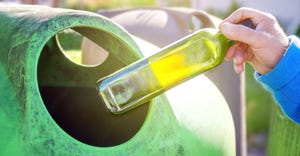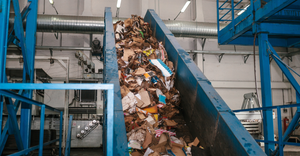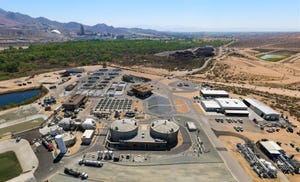California’s Monterey County Plans MRF to Meet State Diversion Goals
Monterey County is building a new material recovery facility (MRF) that will process more than 30 tons per hour (TPH) of single-stream waste, 40 TPH of mixed waste and 40 TPH of construction and demolition (C&D) materials.
The Monterey Regional Waste Management District (MRWMD) will open the multi-line operation in September 2016, according to a news release. Eugene, Ore.-based Bulk Handling Systems (BHS) is designing, manufacturing and installing the new MRF.
“This MRF improvement project will position the district and its member agencies to achieve new levels of success in support of the district’s ‘turning waste into a resource’ mission for the next 20 years,” said District General Manager Tim Flanagan. The project will create new publicly-owned community diversion infrastructure to ensure that district member agencies are compliant with state regulatory requirements, including AB 1826 on organics diversion, AB3 41 on mandatory commercial recycling and CalGreen C&D material diversion. The new MRF will support the 75-percent waste diversion goal by the state in 2020 as well as the district board.
In 2012, it opened the country’s first Smartferm dry anaerobic digestion (AD) facility to convert organics into electricity and compost.
The MRWMD serves an 853 square-mile area and nine member agencies in western coastal Monterey County, including Carmel-by-the-Sea, Del Rey Oaks, Marina, Monterey, Monterey County, Pacific Grove, Pebble Beach Community Services District and Sand City.
The system features two in-feeds, one for C&D materials and one for either single stream or mixed waste. It also includes a BHS Bag Breaker, debris roll screens and Nihot Single Drum Separators for flexibility to process both material types in the mixed materials line.
In addition to the MRF, the MRWMD includes a household hazardous waste collection facility and a landfill gas-to-energy program.
California’s aggressive diversion goals continue to prompt recycling infrastructure investment and moves toward that end. In September San Jose began a pilot food waste collection program in conjunction with recycling and waste hauler Garden City Sanitation (GCS). The pilot program will test two types of carts for residential food waste collection. One will be a newly designed split garbage cart, with a 48-gallon section for waste on one side and a 16-gallon section for food scraps on the other. The one-year pilot program is available to 6,500 San Jose households in the GCS service area. Participation is voluntary.
In addition to the new cart technology, GCS also is operating a new processing facility to add to the environmental benefit of the program. GCS President Louie Pellegrini designed and engineered the processing facility and food scrap collection method, called the Sustainable Alternative Feed Enterprises, or SAFE.
Meanwhile, the California legislature passed a bill creating a sales tax exemption on equipment used for recycling and composting. The proposed legislation would provide a sales-and-use tax exemption on recycling and composting equipment, as well as equipment that uses recycled content in the manufacturing of new products.
About the Author
You May Also Like


